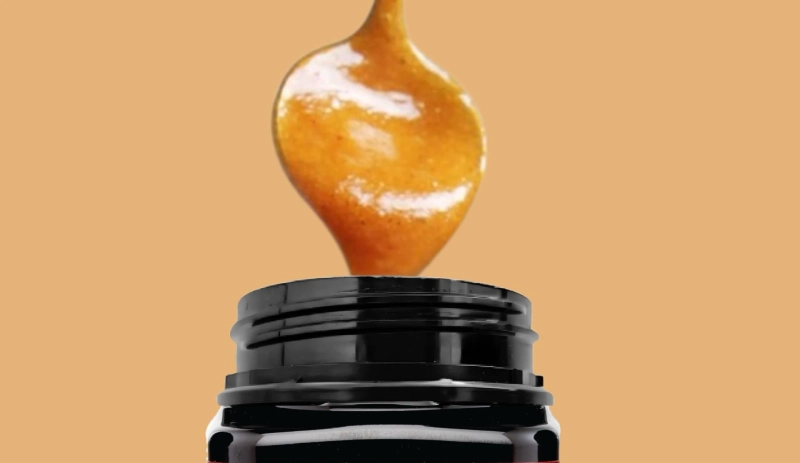Many health-conscious Australians are turning to natural alternatives, but what does that mean when it comes to something as sweet as honey? Here’s what really happens when Manuka honey becomes part of your routine.
When Natural Sweeteners Create Real Confusion
For anyone paying attention to their diet, sugar is often the first thing to go. So when something like Manuka honey—undeniably sweet—is hailed as a superfood, it raises real questions. How can something that tastes like dessert also be good for your body? And more importantly, what does that mean for your weight?
These aren’t idle questions. As more people in Australia trade artificial supplements and processed sweeteners for nature’s alternatives, Manuka honey has become a go-to item on shelves. Its antibacterial properties, immune support potential, and natural sourcing have earned it a premium status—but what about its role in everyday eating?
That’s where the confusion begins.
Why People Worry: Can Something Sweet Still Be Healthy?
Manuka honey isn’t low-calorie. It’s not sugar-free. It isn’t a diet food. But it is full of enzymes, antioxidants, and methylglyoxal (MGO)—a compound that gives Manuka honey its well-known healing qualities.
A single teaspoon of Manuka honey contains roughly 21 calories and 5.5 grams of sugar. That might not sound like much—especially if you're just adding a spoon to your tea—but things can add up quickly. Daily habits, even small ones, matter.
The real concern isn’t that Manuka honey is fattening in a direct, isolated sense. It’s that it can lead to unexpected calorie surplus if used without awareness. And because it’s healthy, many people assume they can use more of it than they should.
A Sydney Story: When “Healthy” Took a Subtle Turn
Take the case of Amanda, a 42-year-old office manager from Parramatta. In her shift toward clean eating, she eliminated refined sugar and processed snacks. Like many in her circle, she stocked up on whole grains, plant-based proteins—and Manuka honey.
“I figured if it came from a bee, it had to be better than white sugar,” she recalled.
Each morning, Amanda stirred a heaping spoon of Manuka honey into her porridge. Another went into her herbal tea. On some nights, she drizzled it over Greek yogurt as a bedtime snack. It felt indulgent—but healthy.
After three months, Amanda was shocked to find she’d gained nearly 3 kilos. She hadn’t changed her workout schedule. Her meals were all "clean." So she sat down with a nutritionist who helped her track every bite.
That’s when it clicked: those extra spoons of honey were quietly stacking up to nearly 150 extra calories per day. Over weeks, that added up to thousands of surplus calories—enough to explain the shift in her weight.
Amanda didn’t need to cut Manuka honey out completely. She just had to use it more intentionally—reserving it for specific times, like when she had a sore throat or felt run-down, rather than stirring it into everything. Once she did, her weight stabilized, and she could still enjoy its benefits.
What Science (and Common Sense) Tell Us
From a nutritional standpoint, honey is about 80% natural sugar and 20% water, with trace amounts of vitamins, minerals, and antioxidants. Manuka honey offers added antibacterial power, but that doesn’t change its calorie content.
Here’s what’s important to know:
- Manuka honey contains about 300–330 calories per 100g.
- One teaspoon (5–7g) contains roughly 20–25 calories and 5–6g sugar.
- It has zero fat, but it can raise blood sugar levels if consumed frequently or in large quantities.
- Its glycaemic index is moderate, so it doesn’t spike blood sugar as quickly as refined sugar, but it's not negligible.
In short, is Manuka honey fattening? Not by nature—but by usage.
Used sparingly and with purpose, it’s unlikely to cause weight gain. But used excessively—even for something natural—it can sneak calories into your day that you didn’t account for.
Making Manuka Honey Work for Your Lifestyle
The good news is you don’t have to give it up. You just need to think about how and when you’re using it. Here are a few smart approaches:
1. Use Manuka Honey When There’s a Functional Reason
Its real strength is in medicinal use—helping with coughs, wounds, sore throats, and immunity support. Instead of making it part of every meal, use it where it actually helps your health.
2. Limit Serving Size—Even When It’s “Healthy”
Stick to one teaspoon per day if you’re watching your weight. That still lets you enjoy its benefits without tipping your calorie balance. And remember: it’s more potent than regular honey, so you don’t need much.
3. Don’t Rely on It for Sweetness Alone
If you’re using honey in everything just to satisfy sugar cravings, the better long-term solution may be to cut down your overall desire for sweets. Natural or not, too much sweet taste keeps cravings alive.
4. Know What You’re Buying
Not all products on the shelf are equal. Always check the label for MGO or UMF ratings, which indicate real potency. Look for verified brands listed among the top 10 best honey in Australia—they’re more likely to give you the actual benefits you’re paying for.
Buying a low-quality jar and using more of it won’t give better results—it just brings more sugar into your system.
The Final Word: Balance Beats Extremes
We live in a time where food comes with labels like “clean,” “natural,” “raw,” or “healing.” And while those things can be true, they don’t cancel out basic nutritional principles. Manuka honey isn’t fattening, but using too much of it can be.
Amanda’s story from Parramatta is common—people replacing one habit with another and assuming that natural means unlimited. The better approach is to keep asking questions, looking at labels, and using high-quality ingredients in moderation.
When used wisely, Manuka honey is a fantastic tool for health, not a threat to your goals. It’s not about banning sweetness from your life. It’s about learning how to use it with care—and purpose.


